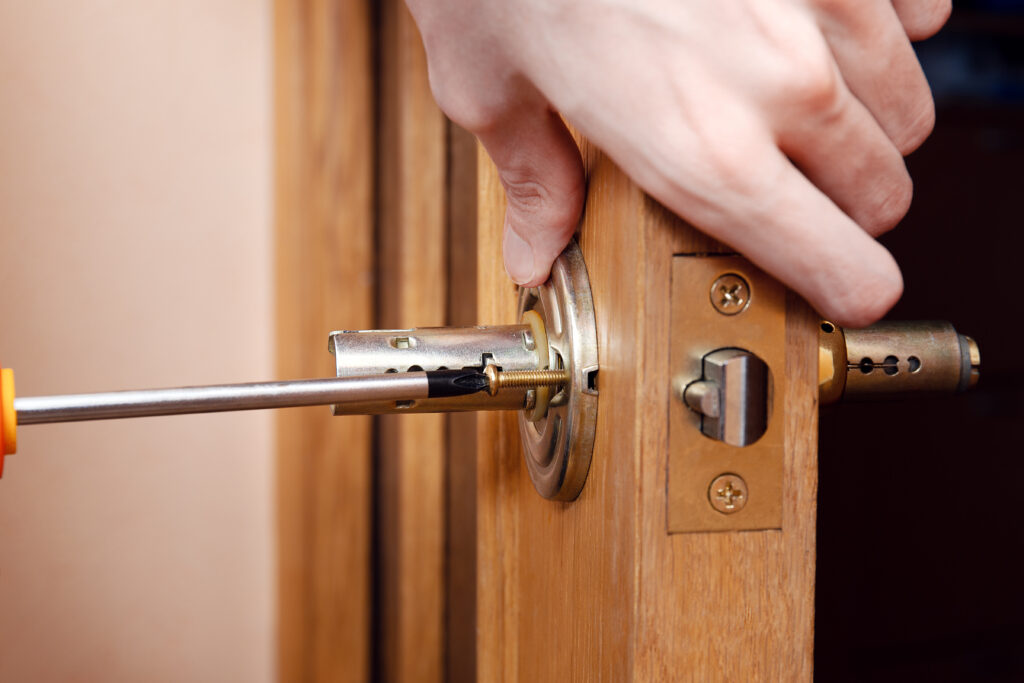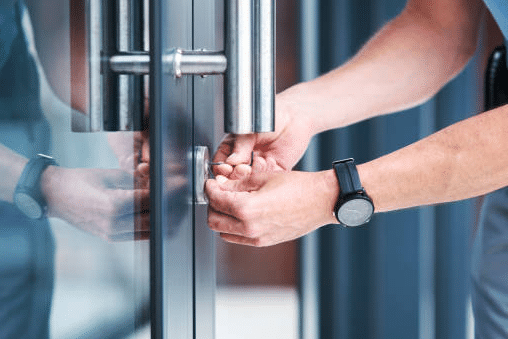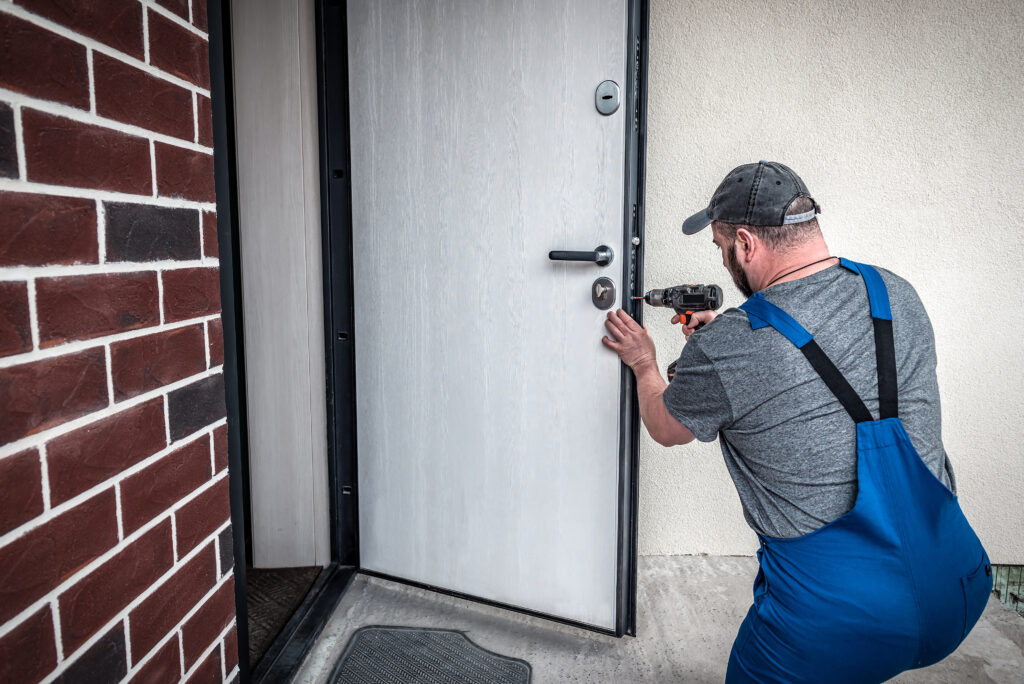When it comes to the security of your home or business, the quality of your locks is paramount. Whether you’re upgrading your existing locks or installing new ones, there are several crucial factors to consider to ensure your property is adequately protected. In this comprehensive guide, we’ll explore 12 important things to keep in mind when fitting a new lock.
1. Lock Type and Functionality
The first and perhaps most critical consideration when fitting a new lock is selecting the right type and functionality. The choice of lock should align with the specific requirements of the location where it will be installed. Consider factors like the type of door or entry point, how frequently it will be used, and the desired level of security. Common options include deadbolts, knob locks, lever handle locks, and electronic or smart locks, each offering different features and levels of protection.
2. Security Grade and Standards
In the United Kingdom, as in many countries, locks are often categorised into different security grades to help consumers make informed choices about their security needs. Understanding these security grades is essential when fitting a new lock, as it provides a clear indication of the lock’s performance and suitability for specific applications.
The most common security grading system used in the UK is the British Standards Institution (BSI) Kitemark.
3. Material and Durability
The material used in the construction of the lock plays a significant role in determining its durability and resistance to wear and tear. High-quality locks are typically made of solid materials such as solid brass or steel, which provide excellent longevity and resistance to corrosion. Investing in a lock crafted from quality materials ensures that it will withstand the test of time and maintain its effectiveness in safeguarding your property.
4. Keying Options
Consider your keying options carefully. Your choice will depend on various factors, including your preferences and specific security needs. Traditional key-operated locks offer simplicity and reliability. However, you may also explore keyless entry options, such as keypad locks or electronic smart locks, which can provide added convenience and enhanced security. Keyless locks can be programmed with unique access codes, making it easy to grant or revoke access without the need for physical keys.

5. Installation Location
The location where the lock will be installed is a fundamental aspect to consider. Different areas of your property may require distinct types of locks to meet their unique security needs. For instance, exterior doors, interior doors, windows, and gates may necessitate locks with varying levels of security features. Assess the specific requirements of each entry point to determine the most suitable lock type.
6. Rekeying and Master Keying
If you have multiple locks on your property, it’s essential to think about whether you need the ability to rekey them or implement a master key system. Rekeying a lock allows you to change the lock’s internal pins and create a new key while keeping the existing lock in place. This can be a cost-effective solution if you need to modify access control without replacing the entire lock. Master keying, on the other hand, allows you to use a single key to open multiple locks, providing convenience for managing access to multiple areas within your property. Consider whether these keying options align with your security and operational requirements.
7. Accessibility and ADA Compliance
For commercial properties and public buildings, it’s essential to consider accessibility requirements. Ensure that the lock you choose is user-friendly for individuals with disabilities. Lever handle locks, for example, are often recommended for compliance with ADA standards, as they are easier to operate for those with limited dexterity or mobility.
8. Key Control and Duplication
Key control is a vital aspect of security management. Some locks offer restricted keying systems that limit key duplication, providing enhanced security and control over who can obtain copies of the key. Restricted keys can only be duplicated by authorised locksmiths or through a specific key control programme. If key control and the prevention of unauthorised key duplication are essential for your security strategy, inquire about restricted keying options when selecting a lock.

9. Aesthetics and Design
While security is paramount, the aesthetics and design of the lock should also be considered. The lock you choose should complement the overall appearance of your property. Locks come in various designs, finishes, and styles, allowing you to select one that seamlessly integrates with your décor. Whether you prefer a classic, modern, or contemporary look, there are locks available to match your aesthetic preferences.
10. Installation Expertise
Proper installation is crucial for a lock’s effectiveness. Even the highest-quality lock may fail to deliver its intended security benefits if it is not installed correctly. While some individuals may attempt DIY lock installations, it is strongly recommended to enlist the services of a professional locksmith or a qualified installer. Experienced locksmiths possess the knowledge and expertise required to ensure that the lock is correctly installed, preventing security vulnerabilities and potential issues that may arise from improper installation.
11. Warranty and Manufacturer Support
Before finalising your lock selection, inquire about the lock’s warranty and the support provided by the manufacturer. A warranty can provide peace of mind in case of any manufacturing defects or issues that may arise after installation. Review the warranty terms, including the duration of coverage and any conditions or limitations. Additionally, consider the level of customer support offered by the manufacturer. Reliable manufacturer support can be valuable in addressing inquiries, obtaining replacement parts, or resolving any concerns that may arise during the lock’s lifecycle.
12. Budget and Cost
Last but not least, consider your budget when fitting a new lock. While quality locks may come at a higher price point, they often provide better long-term value and security compared to cheaper alternatives. It’s essential to strike a balance between your budget and the lock’s features, durability, and level of security. Assess the initial cost against the lock’s expected lifespan and the protection it offers to make an informed decision that aligns with your security goals.
Contact Allround Locksmiths For Lock Fitting
In conclusion, fitting a new lock requires careful consideration of numerous factors, including lock type, security grade, material, keying options, installation location, rekeying and master keying, accessibility, aesthetics, installation expertise, warranty, manufacturer support, and budget. By thoroughly evaluating these aspects and seeking professional advice when necessary, you can select the right lock to enhance the security and protection of your property, ultimately providing you with peace of mind and confidence in your security measures. Fitting a new lock that aligns with your specific needs and requirements ensures that your property remains secure, giving you the peace of mind and confidence you need to go about your daily life worry-free. Get in touch with the lock experts at Allround Locksmiths to find out more.

